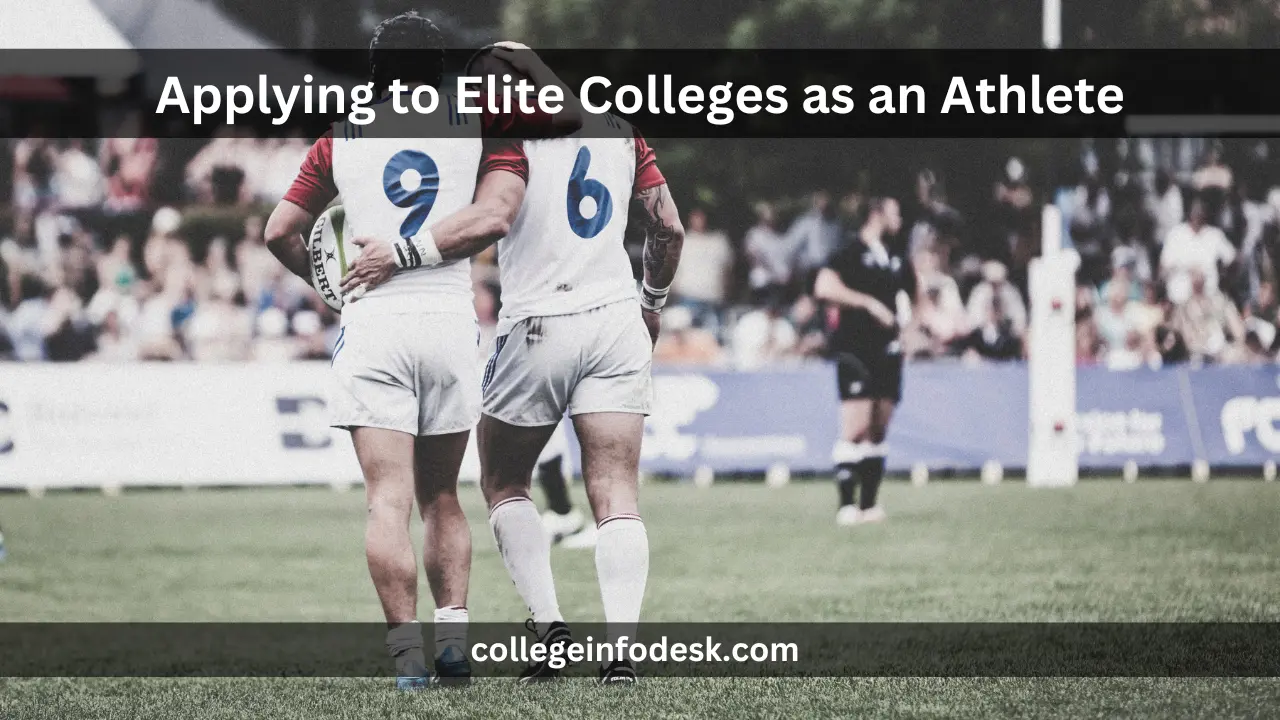Even for the most academically gifted teenagers, securing admission to an Ivy League or Ivy-caliber college can feel like grasping at straws. The acceptance rates at the eight Ivies spanned from Harvard’s daunting 5.9% to Cornell’s comparably more lenient 14%. Even esteemed non-Ivy institutions like Pomona, Williams, Tufts, and Johns Hopkins extended offers to fewer than 15% of their hopeful applicants.
While prestigious colleges often attribute these meager acceptance rates to the overwhelming flood of exceptionally qualified candidates vying for a handful of available slots, this explanation conveniently sidesteps a critical reality. Roughly 40% of spots in any incoming class are earmarked for what are colloquially known as “hooked” candidates—primarily individuals with familial legacies at the institution or those recruited for athletic prowess.
The truth is, if you possess exceptional skills on the field, court, or track, you hold a significant advantage in the admissions process over your academically brilliant yet less athletically inclined peers. Whether you excel at shooting hoops, gliding across the ice, cradling a lacrosse ball, sinking putts, dribbling a soccer ball, sprinting on the track, hurling a discus, or volleying on the court, your athletic prowess can tilt the scales in your favor amidst the cutthroat competition for coveted college spots.
What does research reveal about athletics at small and elite colleges?
In 1992, the median count of student-athletes at Council of Independent Colleges’ member schools, comprising nearly 650 mainly NCAA Division III institutions, stood at 240. Fast forward to 2015, and that figure had surged to 400. By 2023, most prestigious colleges were earmarking roughly 20% of their enrollment for athletes, with some sports-centric, high-prestige institutions going even higher. Take Dartmouth, for instance, with its undergraduate population of approximately 4,400 students, boasting over 1,050 varsity athletes, constituting 24% of its student body. Notably, at many elite schools, the proportion of recruited student-athletes relative to the overall student body far exceeds that of renowned athletic powerhouses like Ohio State or the University of Miami. With such skewed demographics, possessing athletic prowess alongside academic excellence can indeed be a decisive factor in accessing America’s most selective colleges.
How impactful is athletic status in elite college admissions?
Ivy League institutions and many top-tier colleges with Division III athletics extend significant advantages to sought-after athletes. To quantify this advantage, athletes recruited by coaches at elite schools often scored 200 points lower on the SAT than the average admitted applicant. Though challenging to measure precisely, studies suggest that athletes are up to four times more likely to secure admission to Ivy League schools compared to their non-athlete peers. For instance, at Harvard University, where applicants are rated on a scale of one-to-six based on their academic qualifications, athletes with a rating of four boasted a 70% admission rate, dwarfing the mere 0.076% admission rate for non-athletes with the same rating. Let that statistic sink in for a moment—especially if you’re a star athlete aspiring to don the Crimson uniform.
What are the constraints of athletic prowess?
Without a doubt, academic excellence is imperative—unless you’re a football prodigy or a towering basketball talent. Just kidding—well, kind of. No amount of athletic glory can compensate for a lackluster 2.7 GPA and a paltry 920 SAT score when it comes to securing a spot at Princeton. You must meet the academic standards, pun intended, to even be considered. While the recruiting process at top academic institutions may raise ethical concerns, it doesn’t come close to the sensationalized scenario depicted in “Blue Chips,” a 1994 film portraying a corrupt college athletics department resorting to bribery to secure basketball recruits.
How does recruitment at elite colleges unfold?
Official NCAA recruiting season kicks off the summer before a high school athlete’s junior year, although coaches and prospective players often initiate communication well before then. At Division III schools like Amherst, Middlebury, and Emory, coaches can reach out at any time during high school, while athletes at all institutions, including Division I schools, can initiate contact with a coach whenever they please. For aspiring athletes eyeing academically distinguished institutions, reaching out to coaches early in high school can pay dividends during the admission process. Keep in mind that even at Ivy League schools, a lacrosse coach’s endorsement may carry more weight than a Nobel Prize-nominated faculty member’s recommendation.
Which sports offer the easiest scholarship opportunities?
While we’re not athletic recruiters and can’t evaluate your fastball or field hockey skills, we can shed light on the likelihood of transitioning from high school to college sports based on NCAA data. The highest success rates for men in terms of continuing from high school to an NCAA team were observed in lacrosse (12.4%), ice hockey (11.9%), and baseball (7.1%). Conversely, wrestling (2.9%), basketball (3.4%), and volleyball (3.5%) had the lowest success rates. For women, ice hockey (24.5%), lacrosse (12.6%), and field hockey (10%) boasted the highest continuation rates, while basketball (1.2%), volleyball (1.2%), and tennis (1.5%) recorded the lowest percentages, with softball closely following at 1.7%.
Conclusion
The role of athletics in elite college admissions cannot be overstated. With a significant proportion of spots in prestigious institutions reserved for athletes, possessing athletic prowess alongside academic excellence can be a decisive factor in accessing America’s most selective colleges. Research indicates that recruited athletes enjoy substantial advantages in admissions, often securing spots with SAT scores significantly lower than the average admitted applicant. However, it’s essential to recognize that academic achievement remains paramount, and athletic prowess alone cannot compensate for subpar academic performance. The recruitment process at top academic institutions is nuanced, requiring early engagement with coaches and meeting rigorous academic standards. While certain sports offer more scholarship opportunities than others, success ultimately depends on individual talent and dedication. Overall, understanding the dynamics of athletics in elite college admissions can empower aspiring student-athletes to navigate the process strategically and maximize their chances of success.
